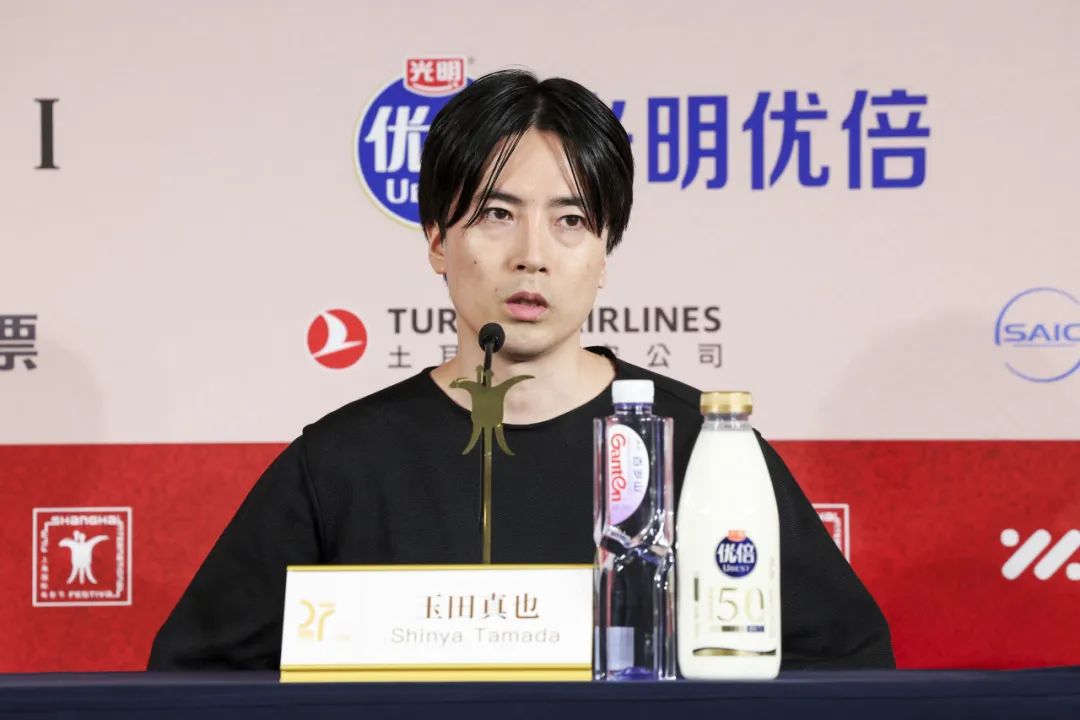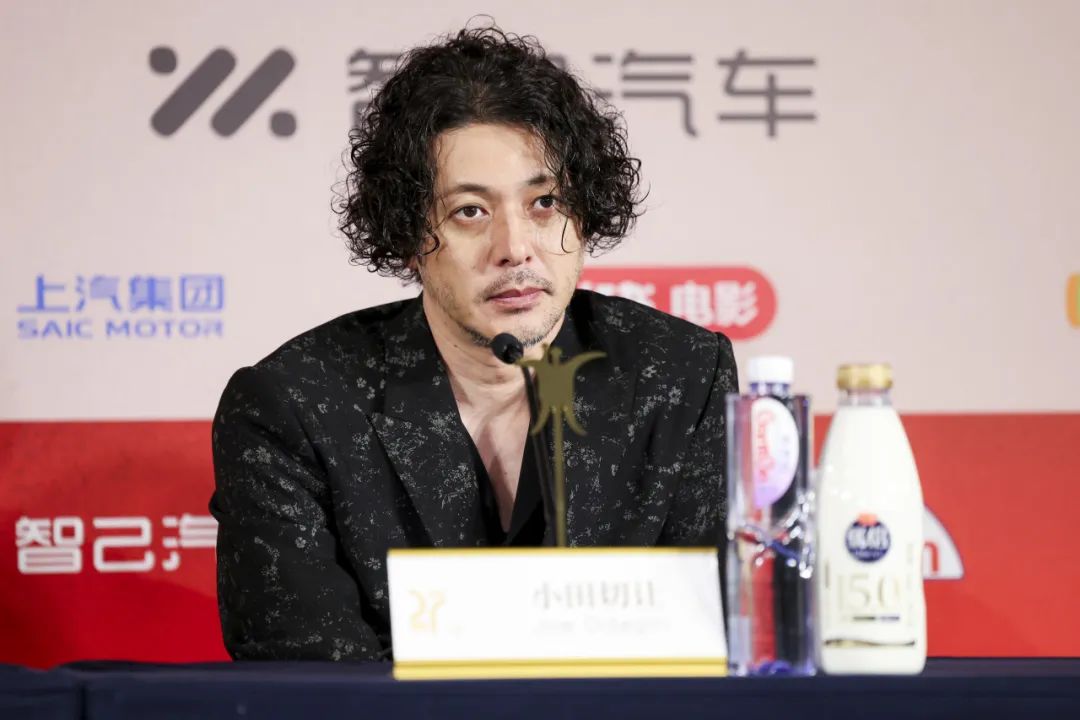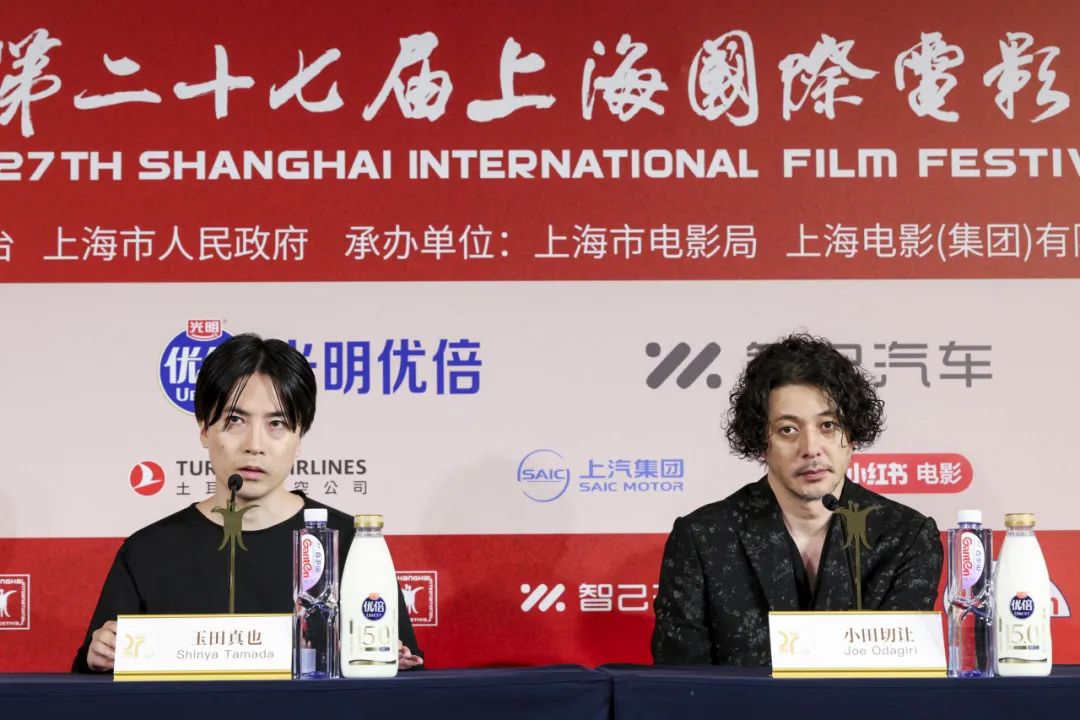Golden Goblet Awards Main Competition Film | On Summer Sand: Life Is Not Only Shrouded in Pain - Sunlight Eventually Brings Hope
On the afternoon of June 20, the production team of On Summer Sand, a film selected for the Main Competition section of the 27th Shanghai International Film Festival’s Golden Goblet Awards, attended a meet-and-greet event. Director Tamada Shinya appeared alongside lead actor Jô Odagiri.
Adapted from a stage play by Masataka Matsuda - recipient of the Yomiuri Prize for Literature for Drama and Scriptwriting - the film integrates Tamada’s theatrical background, using quiet and gentle cinematography to tell a healing story set during a summer in Nagasaki. “I believe the lingering emotions we carry are the essence of what it means to be alive,” said Tamada. “Through this film, I wanted to gently convey that message.”

Craft a Unique Atmosphere through Light and Rain
Tamada is known for his skillful adaptations of stage plays. His earlier film, I Am What I Am, was part of the 2023 Shanghai International Film Festival’s screening section. His debut feature, Lust in a Karaoke Box, was also based on a stage play he originally wrote for his theater troupe. Similarly, On Summer Sand stems from a play of the same name.
Transitioning from the confined environment of a stage to the expansive medium of film presented considerable challenges. “The original play was confined to a single setting - the living room of the protagonist, Mr. Osamu Koura. There were no scene changes, and the story relied entirely on dialogue and performance,” Tamada explained. “But in film, the director must carefully choose each location and composition, guiding the actors to bring the story to life through imagery as well.”

In the film, Jô Odagiri plays Osamu Koura, a man devastated by the death of his young son, the collapse of his shipbuilding company, and the departure of his wife. His life is cloaked in gloom - until he begins to bond with his niece, through whom he gradually finds renewed hope and a reason to live.
To create a warm, healing ambiance, Tamada paid special attention to light and atmosphere. “Osamu Koura’s house is an old-style Japanese home - bright in the courtyard, but dim inside the rooms. I wanted to portray that kind of gradual light transition,” he said. “The story is set in Nagasaki during the summer. But summer there isn’t always sunny - it often rains for days. I wanted to capture a gloomy, humid summer, and put a lot of thought into how to express that through light and shadow.”

Filmed in the coastal city of Nagasaki, On Summer Sand uses water as a powerful and recurring symbol. The story opens with a tragedy - Osamu Koura’s young son is swept away and killed in a flood. By the film’s end, Osamu Koura stands in a torrential downpour, drinking rainwater to release his bottled-up emotions. To director Tamada Shinya, this final rain is as heavy as the one that took away Osamu Koura’s son. “But this time, the meaning of the rain is completely different,” he explained. “Now, the gears of his life have begun to turn once more. So, this rain carries two meanings: one is the rain that can take life away; the other is the rain that can give life anew.”
Life Is Not Only Shrouded in Pain - It Is Also Filled with Hope
Osamu Koura’s life stalls after the devastating loss of his son. His niece Yuko, who initially arrives as an uninvited guest, eventually becomes like family, bringing a touch of warmth and light into his somber existence. “He lost his child, his wife left him, and he was eventually out of work - his life completely came to a standstill. Yuko stayed with him through a painful summer and helped him take a vital step forward,” said actor Jô Odagiri. He especially loved the farewell scene at the end of the film. “I believe life isn’t just about being engulfed in sorrow and darkness. Bright sunlight will eventually bring hope.”

Over the course of his career, Jô Odagiri has worked multiple times with Japanese actress Takako Matsu. In On Summer Sand, the two reunite onscreen as husband and wife. Jô Odagiri described their relationship as “comrades in arms”. “We’ve grown to be very close friends. We even got married around the same time - I got married, and a month later, so did she.”
However, in On Summer Sand, Jô Odagiri’s character Osamu Koura experiences the heartbreak of losing his son, after which his wife - played by Takako Matsu - leaves him resolutely. Although their characters’ relationship in the film is far from ideal, Odagiri was full of praise for Matsu’s performance. “The audience will get to see a very special side of Takako Matsu. In her final scene, her emotional control was absolutely spot on. It’s arguably the best shot in the entire film.”
Audiences May Try Something Different with an Art Film
In On Summer Sand, Jô Odagiri took on a dual role - as both lead actor and producer. Beyond acting, he also supported the director during editing and post-production sound design. “I’m also a director myself, so I offered Tamada Shinya some constructive suggestions during the process - for instance, whether a certain scene should be cut earlier to the next one. But ultimately, I always deferred to his vision.”

Throughout his career, Jô Odagiri has gravitated toward arthouse cinema, rarely participating in commercial blockbusters. He admitted candidly, “That’s simply my personal preference.” “I don’t watch commercial or Hollywood blockbuster films. I prefer arthouse films - those selected for Cannes or the Venice Film Festival. So naturally, I don’t act in commercial movies either.”
On Summer Sand is indeed an arthouse film. It is scheduled for release in Japan this July, but like many films of its kind, it will likely only be screened in small independent theaters. “If audiences are willing to come to these smaller cinemas to watch arthouse films, it means we’ve managed to challenge the dominance of commercial cinema,” said Jô Odagiri. “Not everyone enjoys watching entertainment-driven films. For those looking for a change of pace, this film is a great choice.”







